Overtraining & Testosterone: Does Too Much Exercise Ruin Your T-Levels?
9 months ago
5 minute read.

Exercising regularly is a key part of any healthy lifestyle, but too much exercise can have some surprisingly adverse effects on your body, including lowering your testosterone levels.
If you're training too much or using the wrong training program, your testosterone levels can drop, throwing your hormonal balance out of whack and putting you at risk for low energy, fatigue, muscle loss, moodiness, depression, and more! So keep reading to learn more about how overtraining affects testosterone and what you can do about it.
The Link Between Exercise And Testosterone
Regular exercise is great for boosting testosterone levels. But what happens when you start working out too much? Overtraining can lead to an overtraining syndrome, characterized by a decrease in athletic performance, changes in mood, and other symptoms.
While the exact cause of overtraining syndrome is unknown, it is thought to be linked to hormones, including testosterone. To prevent the overtraining syndrome, experts recommend rest days and listening to your body. If you're feeling stressed or lethargic after your workouts, take some time off from exercising until you feel better again.
TRY OUT THE BEST GUIDED-WORKOUT PLANS CURATED BY EXPERTS TO ACHIEVE YOUR FITNESS GOALS.
DOWNLOAD THE WELLNESS CORNER APP TO EXPLORE WELLNESS PLANS.

How Does Exercise Affect Your Testosterone Levels?
According to a study, too much exercise can decrease your testosterone levels. The study found that men who exercised more than five hours a day had lower testosterone levels than those who exercised for 1-2 hours a day.
So, to improve your athletic performance, you might want to take a rest day or two each week. The researchers don't know the exact link between testosterone and human muscle strength (or the dose of exercise needed to produce higher testosterone). But they do know that high levels of physical activity correspond with high levels of inflammation, which has been linked to low testosterone.
Plus, there are other benefits of exercise—namely, building muscle mass and cardiovascular health—that might be worth it, even if it means sacrificing some testosterone production.
Best Exercises To Increase Testosterone
High-intensity interval training (HIIT) is one of the best exercises to increase testosterone. HIIT can lead to significant increases in testosterone levels. Other exercises that can help increase testosterone levels include lifting weights and sprinting. However, it's important not to overtrain, as this can decrease testosterone levels.
Exercises That Increase Testosterone
Here are a few exercises that have been shown to help increase testosterone levels. These include resistance training, sprinting, and high-intensity interval training. While all of these exercises can be beneficial, avoiding overtraining is important, as this can lead to decreased testosterone levels. Instead, focus on quality over quantity and give your body adequate rest between workouts.
Front Squats:
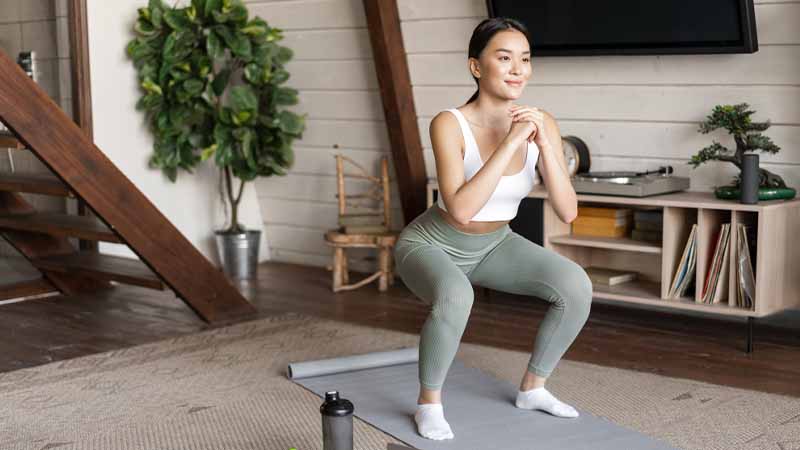
The front squat is the king of all lower body exercises. It works your quadriceps, hamstrings, and glutes and will make you a better athlete in every sport. Try to find a squat rack at your gym with no one around so you can do these unassisted. If that's not possible, use a lifting partner or ask for help when you need it.
[ Can you accomplish The Wellness Corner Squats Challenge? ]
Goblet Squat:
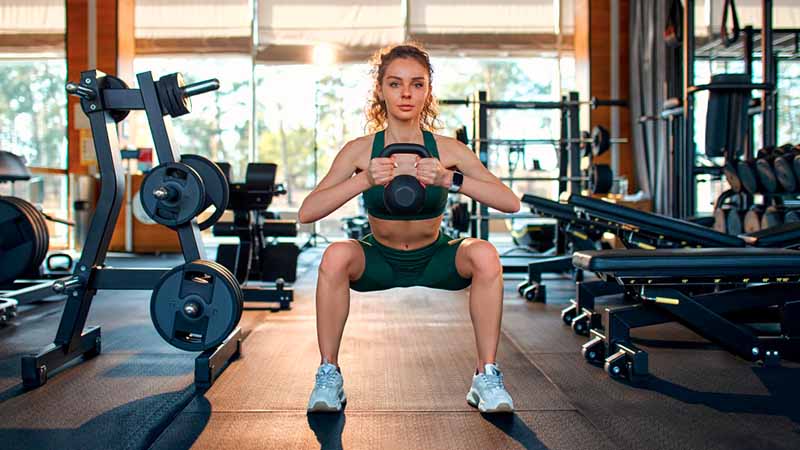
The goblet squat is a fantastic exercise to increase testosterone levels in men and women alike. To perform this exercise, stand with feet shoulder-width apart, and hold a kettlebell by its horns directly under your chin with both hands on top as if you were holding a bowling ball. Maintain this grip throughout the movement and tuck in your elbows for safety. Press your hips back and begin bending your knees to perform the squat.
Deadlifts:

Pulling heavy weights off the ground may seem like only meatheads do, but deadlifts are an incredibly versatile move that increases athletic performance in sports like wrestling, football, rugby, track and field events (e.g., long jump), rowing (a boat race) etc. As such, deadlifting is often prescribed as part of an off-season training program for athletes from all walks of life--even world-class runners who spend most of their time running on flat surfaces like roadways.
Bench Presses:
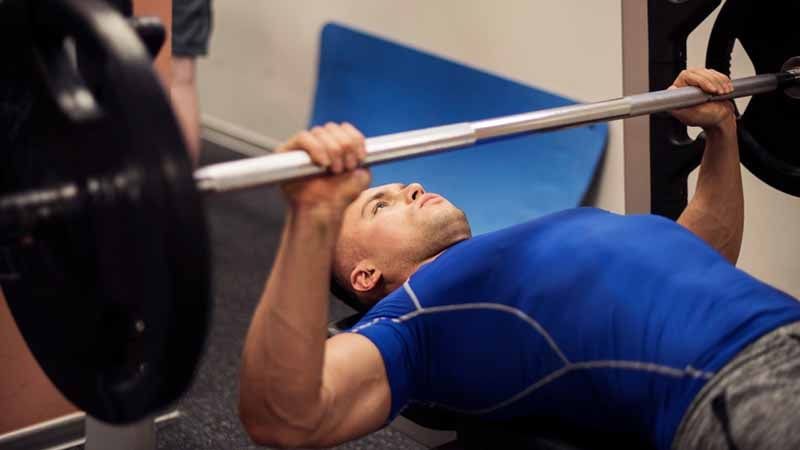
One of the best ways to build up your bench press is doing pushups. Pushups are hard, but they're also great for building up endurance and core strength. Doing 10 pushups daily should be enough to significantly improve your bench press over a few months!
Pushups:
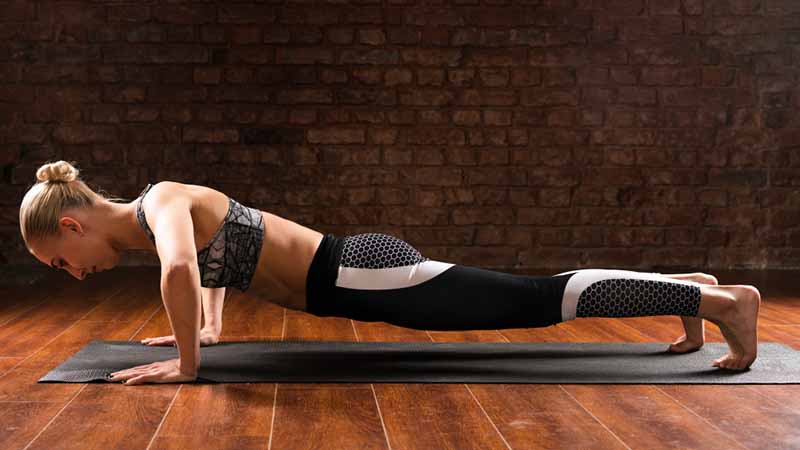
Do pushups daily to improve your athletic performance. They don't take much time, so even just ten reps each day should make a difference in six months. Pushups strengthen your chest muscles and shoulders, which helps develop strong arm muscles. You'll also get stronger stabilizer muscles in your arms, back, and hips, improving athletic performance across the board.
Hip Thrusts:
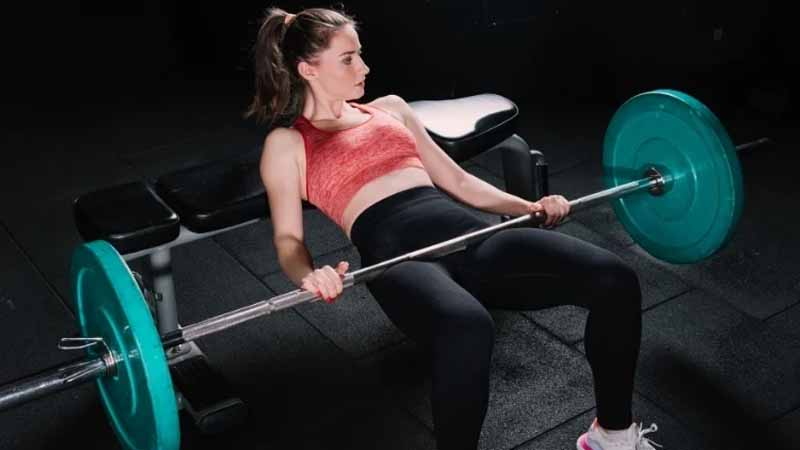
Hip thrusts are another excellent exercise for increasing testosterone. Sit on the ground with a bench behind you, bending your knees so your feet are planted on the ground and holding a barbell resting below your hips , then rock your hips backward and squeeze your butt. You want to focus on getting a good stretch in your hamstrings at the bottom of each rep. Keep your legs straight. Repeat for three sets of 12 reps, adding weight whenever you can.
[ 5 Benefits Of Ashwagandha For Men's Health That You Didn't Know ]
What Else Can You Do to Increase Testosterone?
In addition to exercising, you can do a few other things to increase your testosterone levels. One is to make sure you're getting enough sleep. Sleep is important for all aspects of health, including hormone production. Another is to limit your alcohol intake. Alcohol can interfere with testosterone production and lower your levels. You can also try taking supplements like vitamin D or zinc, which have been linked to higher testosterone levels.
[ What Actually Increases Your Testosterone and What Doesn't? ]
The Bottom Line
It's well-known that exercise is essential for optimal health. But can you have too much of a good thing? The short answer is No; Overtraining (defined as excessive training with insufficient recovery) has been shown to negatively impact testosterone levels, among other things like mood and cognition. However, it takes an enormous amount of effort to reach this point. If you are exercising moderately and trying to get stronger without overdoing it, then you should be safe!
Leave a Comment
Related Articles
Health Checks @ Home
Service
Explore
© 2025 Truworth Health Technologies Pvt. Ltd.




